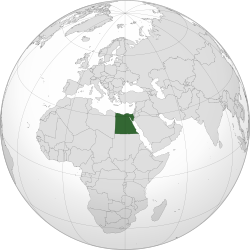Denmark officially the Kingdom of Denmark,is a Nordic country and a sovereign state. The southernmost of the Scandinavian nations, it is south-west of Sweden and south of Norway and bordered to the south by Germany. The Kingdom of Denmark also comprises two autonomous constituent countries in the North Atlantic Ocean: the Faroe Islands and Greenland. Denmark proper consists of a peninsula, Jutland, and an archipelago of 443 named islands,[N 2][10] with the largest being Zealand, Funen and the North Jutlandic Island. The islands are characterised by flat, arable land and sandy coasts, low elevation and a temperateclimate. Denmark has an area of 42,924 km2(16,573 sq mi),[3] total area including Greenland and the Faroe Islands is 2,210,579 km2 (853,509 sq mi), and a population of 5.78 million (as of 2018).[4]
The unified kingdom of Denmark emerged in the 10th century as a proficient seafaring nation in the struggle for control of the Baltic Sea.[2] Denmark, Sweden and Norway were ruled together under the Kalmar Union, established in 1397 and ending with Swedish secession in 1523. Denmark and Norway remained under the same monarch until outside forces dissolved the union in 1814. The union with Norway made it possible for Denmark to inherit the Faroe Islands, Greenland and Iceland. Beginning in the 17th century, there were several cessions of territory to Sweden. In the 19th century there was a surge of nationalist movements, which were defeated in the 1864 Second Schleswig War. Denmark remained neutral during World War I. In April 1940, a German invasion saw brief military skirmishes while the Danish resistance movement was active from 1943 until the German surrender in May 1945. An industrialised exporter of agricultural produce in the second half of the 19th century, Denmark introduced social and labour-market reforms in the early 20th century that created the basis for the present welfare state modelwith a highly developed mixed economy.
The Constitution of Denmark was signed on 5 June 1849, ending the absolute monarchy, which had begun in 1660. It establishes a constitutional monarchy organised as a parliamentary democracy. The governmentand national parliament are seated in Copenhagen, the nation's capital, largest cityand main commercial centre. Denmark exercises hegemonic influence in the Danish Realm, devolving powers to handle internal affairs. Home rule was established in the Faroe Islands in 1948; in Greenland home rule was established in 1979 and further autonomy in 2009. Denmark became a member of the European Economic Community (now the EU) in 1973, maintaining certain opt-outs; it retains its own currency, the krone. It is among the founding members of NATO, the Nordic Council, the OECD, OSCE, and the United Nations; it is also part of the Schengen Area.
Denmark is considered to be one of the most economically and socially developed countries in the world.[11] Danes enjoy a high standard of living and the country ranks highly in some metrics of national performance, including education, health care, protection of civil liberties, democratic governance, prosperity and human development.[12][13][14]The country ranks as having the world's highest social mobility,[15] a high level of income equality,[16] is the country with the lowest perceived level of corruption in the world, has one of the world's highest per capita incomes, and one of the world's highest personal income tax rates.[17]



